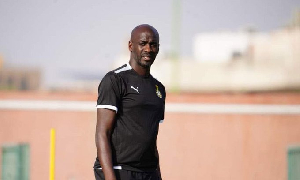Parliament has passed into law the Road Traffic (Amendment) Bill 2020.
The Bill introduces severe punishment for road traffic offenders whose actions lead to the death of an unborn child.
It's a private member’s Bill which was proposed by Members of Parliament (MPs).
It is the first time in Ghana’s history that such a Bill has been approved by Parliament.
The Bill amends the Road Traffic Act, 2004 (Act 683) to lay out sanctions against drivers and cyclists whose actions and inactions result in injury or death to unborn children in the womb of pregnant mothers.
The Road Traffic Act, 2004 (Act 683) which was subsequently amended by the Road Traffic (Amendment) Act, 2008 (Act 761) generally provides for the protection of children.
The Bill amends Section 1 of the original Act to prohibit the driver of a motor vehicle from driving dangerously on a road as to result in the death of a person including an unborn child. A driver commits an offense if the driver drives dangerously on the road that results in the death of a person including an unborn child.
The driver is on summary conviction liable to a term of imprisonment of not less than three years and not more than seven years if his actions or inactions harm an unborn fetus. This is separate from sanctions the traffic offender may get for death or injury caused to the pregnant mother herself.
Similarly, a person who rides a cycle dangerously on a road that results in the death of an unborn child commits an offence and is liable on summary conviction to a term of imprisonment of not less than three years and not more than seven years.
Clause 3 of the amendment Bill amends the original act to impose a duty on a driver of a motor vehicle to, as soon as reasonably practicable, report to a Police station on the occurrence of an accident that results in the death of an unborn child.
Reacting to the passage of the Bill Ras Mubarak, the MP for Kumbungu expressed joy saying: “I feel humbled, yet proud that I, together with Hon. Osei Kyei Mensah Bonsu the Majority Leader, Hon. Haruna Iddrisu the Minority Leader & Hon Ben Abdallah Banda, Chair of the Constitutional & Legal committee of Parliament, initiated the first ever Private Members Bill to be passed by parliament.
The Legislation we sponsored, which is an Amendment to the Road Traffic Act (Act 684) proscribes acts that constitute dangerous driving that result in injury or death of a human fetus (unborn baby) or dangerous cycling that results in the injury or death of an unborn baby and for related matters. A pregnant woman gets involved in a motor accident and there are no remedies for the child or fetus in her womb. This law changes that and could see drivers or riders whose recklessness result in the injury or death of an unborn child receive a minimum of three years and maximum of seven years imprisonment when found guilty.
This couldn’t have been possible without support from Speaker Mike Ocquaye, who from the beginning of his tenure made it clear he wanted to see individual MPs do private bills.
We received invaluable support during consultations from Inusah Fuseini, Dr. Dominic Akuritinga Ayine, Muntaka Mubarak, Frank Annoh-Dompreh, the leadership of the Roads & Transport Committee, Ministry of Transport, Road Safety, Ghana Police, Attorney General’s Department, colleagues from both sides of the aisle and especially the legislative drafting unit of Parliament.
Hitherto to this, only governments could sponsor or initiate bills. We have broken the glass ceiling, made legislation that protects the unborn child, imposed a burden on drivers and cyclists to drive or ride carefully and paved the way for MPs in the future to initiate private bills.
When all is said and done, history will be kind to us. We did not only ride a bicycle to parliament to accentuate the rising cost of living, but we made the well-being of not just the people of Kumbungu but of Ghanaians, the centrepiece of everything I did in parliament. I will leave the 7th parliament feeling good that, the job the people of Kumbungu sent me to do has been done well and we’ve made a difference.”
Click to view details



General News of Saturday, 19 December 2020
Source: rainbowradioonline.com

















